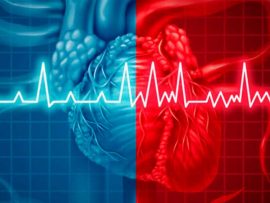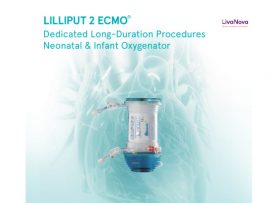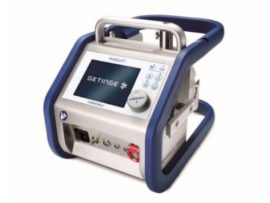Abstract Introduction Evidence suggests that Extracorporeal Cardiopulmonary Resuscitation (ECPR) can improve survival rates for nontraumatic out-of-hospital cardiac arrest (OHCA). However, when ECPR is indicated over 50% of potential candidates are..
Lee masAbstract Veno-arterial extracorporeal membrane oxygenation (VA-ECMO) is a powerful hemodynamic support strategy for patients with cardiogenic shock and out-of-hospital cardiac arrest (OHCA). Given that significant proportions of patients presenting with..
Lee masAbstract Background Extracorporeal cardiopulmonary resuscitation (ECPR) may reduce mortality and improve neurological outcomes in patients with cardiac arrest. We updated our existing meta-analysis and trial sequential analysis to further evaluate..
Lee masAbstract Background Out-of-hospital cardiac arrest (OHCA) remains a frequent medical emergency with low survival rates even after a return of spontaneous circulation (ROSC). Growing evidence supports formation of dedicated teams..
Lee masAbstract Extracorporeal cardiopulmonary resuscitation (ECPR) has emerged in the context of the emergency department as a life-saving therapy for patients with refractory cardiac arrest. This review examines the utility of..
Lee masAbstract Introduction Growing evidence supports cardiopulmonary resuscitation (ECPR) for refractory out-of-hospital cardiac arrest (OHCA) patients, especially in experienced centres. We present characteristics, , and outcomes of patients treated with ECPR in a..
Lee masAbstract Introduction Survival from refractory out of hospital cardiac arrest (OHCA) without timely return of spontaneous circulation (ROSC) utilising conventional advanced cardiac life support (ACLS) therapies is dismal. CHEER3 was..
Lee masAbstract The pathophysiology of post-cardiac arrest syndrome features ischaemic/reperfusion injury and the release of high levels of inflammatory cytokines [1]. These inflammatory markers include interleukin-6 (IL-6), C-reactive protein (CRP), tumour..
Lee masAbstract Background Extracorporeal cardiopulmonary resuscitation (ECPR) has been shown to improve neurologically favorable survival for patients with refractory ventricular tachycardia (VT)/ventricular fibrillation (VF) out-of-hospital cardiac arrest. Prior studies of the impact of age..
Lee masAbstract Purpose: Patients who are successfully resuscitated following out‑of‑hospital cardiac arrest (OHCA) are still at a highrisk of neurological damage and death. Inflammation and brain injury are components of the..
Lee masAbstract Aim of the Review: Improving rates of organ donation among patients with out-of-hospital cardiac arrest who do not survive is an opportunity to save countless lives. The objectives of..
Lee masAbstract Background The severity of tissue hypoxia is routinely assessed by serum lactate. We aimed to determine whether early lactate levels predict outcomes in refractory out-of-hospital cardiac arrest (OHCA) treated..
Lee masAbstract Extracorporeal cardiopulmonary resuscitation is a promising treatment for refractory out-of-hospital cardiac arrest. Three recent randomized trials (ARREST-trial, Prague OHCA study, and INCEPTION-trial) that addressed the clinical benefit of ECPR..
Lee masAbstract Introduction Coronary angiography (CAG) frequently reveals coronary artery disease (CAD) after out-of-hospital cardiac arrest (OHCA), but its use is not standardized and often reported in different subpopulations. This systematic..
Lee masAbstract Aim In this study we aimed to investigate how many with an out-of-hospital cardiac arrest (OHCA) would benefit from pre-hospital as opposed to in-hospital initiation of cardiopulmonary resuscitation (ECPR). Methods A of Utstein..
Lee masAbstract Background Although outcomes of patients after cardiac arrest remain poor, studies have suggested that extracorporeal cardiopulmonary resuscitation (ECPR) might improve survival and neurological outcomes. We aimed to investigate any..
Lee masAbstract Background Refractory out-of-hospital cardiac arrest (OHCA) treated with standard advanced cardiac life support (ACLS) has poor outcomes. Transport to hospital followed by in-hospital extracorporeal cardiopulmonary resuscitation (ECPR) initiation may..
Lee masAbstract Background In adults with refractory out-of-hospital cardiac arrest, when conventional cardiopulmonary resuscitation (CPR) alone does not achieve return of spontaneous circulation, extracorporeal CPR is attempted to restore perfusion and..
Lee masAbstract Cardiac arrest science continues to evolve and in the last two years many cardiac arrest clinical trials have been published in high-impact journals. In this manuscript we have selected 6..
Lee masAbstract Objective This systematic review and meta-analysis aimed to investigate the role of regional cerebral oxygen saturation (rSO2) in predicting survival and neurologic outcomes after extracorporeal cardiopulmonary resuscitation (ECPR). Design..
Lee masAbstract BACKGROUND Extracorporeal cardiopulmonary resuscitation (CPR) restores perfusion and oxygenation in a patient who does not have spontaneous circulation. The evidence with regard to the effect of extracorporeal CPR on..
Lee masAbstract Aim The aim of this study was to describe the survival and neurological outcome in patients with treated with and without mechanical (MCS). Methods This was a retrospective observational on patients with..
Lee masAbstract Importance: Out-of-hospital cardiac arrest (OHCA) has poor outcome. Whether intra-arrest transport, extracorporeal cardiopulmonary resuscitation (ECPR), and immediate invasive assessment and treatment (invasive strategy) is beneficial in this setting remains uncertain...
Lee masAbstract Background: The use of extracorporeal membrane oxygenation (ECPR) in refractory out-of-hospital cardiac arrest (OHCA) patients is usually implemented in-hospital. As survival in ECPR patients is critically time-dependent, alternative models..
Lee masAbstract Background: Survival rates in refractory out-of-hospital cardiac arrest (OHCA) remain low with conventional advanced cardiac life support (ACLS). Extracorporeal life support (ECLS) implantation during ongoing resuscitation, a method called..
Lee masAbstract Objectives: Out-of-hospital cardiac arrest (OHCA) is associated with excessively high mortality rates. Recent studies suggest benefits from extracorporeal cardiopulmonary resuscitation (ECPR) performed in selected patients. We sought to present..
Lee mas









